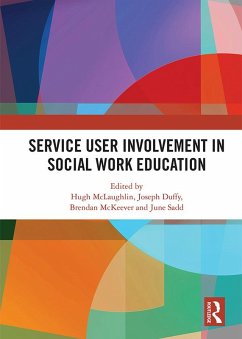
Key Themes in Social Policy (eBook, PDF)

PAYBACK Punkte
21 °P sammeln!
Key Themes in Social Policy provides an accessible and authoritative introduction to the key concepts used in social policy, from autonomy to wellbeing.With over 100 ideas discussed, this is a comprehensive student guide and is designed to help readers to gain a deeper understanding of major debates and issues. Each entry: explains the origin of the word discusses its relationship to the social sciences describes its relevance to social policy and how widespread its use is outlines some of the key thinkers and research on the topic and gives suggestions for further reading. Making it easy to...
Key Themes in Social Policy provides an accessible and authoritative introduction to the key concepts used in social policy, from autonomy to wellbeing.
With over 100 ideas discussed, this is a comprehensive student guide and is designed to help readers to gain a deeper understanding of major debates and issues. Each entry:
Making it easy to understand and use the most important ideas in the area, this is an essential companion for all students taking social policy courses.
With over 100 ideas discussed, this is a comprehensive student guide and is designed to help readers to gain a deeper understanding of major debates and issues. Each entry:
- explains the origin of the word
- discusses its relationship to the social sciences
- describes its relevance to social policy and how widespread its use is
- outlines some of the key thinkers and research on the topic and gives suggestions for further reading.
Making it easy to understand and use the most important ideas in the area, this is an essential companion for all students taking social policy courses.
Dieser Download kann aus rechtlichen Gründen nur mit Rechnungsadresse in A, B, BG, CY, CZ, D, DK, EW, E, FIN, F, GR, HR, H, IRL, I, LT, L, LR, M, NL, PL, P, R, S, SLO, SK ausgeliefert werden.













